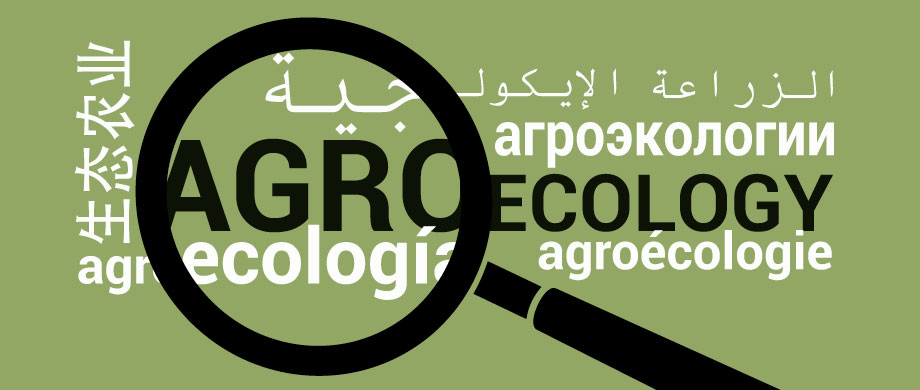Définition de l'agroécologie
Il existe beaucoup de définitions de l’agroécologie, élaborées en de nombreux endroits de par le monde par maints acteurs différents. Depuis les années 20, scientifiques et chercheurs emploient ce terme pour désigner l’application de principes écologiques au secteur de l’agriculture. Ce n’est qu’au début des années 1980 que les écologues, les agronomes et les ethnobotanistes ont désigné l’agroécologie comme discipline à part entière.
Compte tenu de la grande variété des acceptions et des interprétations de ce terme, la FAO a créé une base de données qui en recense les différentes définitions. Celles-ci proviennent notamment de publications (rédigées par des scientifiques, des membres de la société civile, des universitaires, des administrations), de textes juridiques et d’orientations politiques.
La base de données restitue les nombreuses facettes de la notion d’agroécologie, mais elle met également en évidence des éléments communs aux différentes définitions du terme, adaptés à chaque contexte. Le cadre conceptuel de la notion d’agroécologie élaboré par la FAO rend compte de ces éléments communs.
La FAO a défini un cadre composé de dix éléments inspirés des principes communs sur lesquels se fonde l’agroécologie. Ils relèvent notamment d’aspects biophysiques et socioéconomiques qui reposent sur les trois piliers du développement durable (les dimensions sociale, économique et environnementale). Différents éléments sont susceptibles d’entrer en jeu selon diverses configurations, avec une prédominance marquée des aspects sociaux, économiques et environnementaux.


